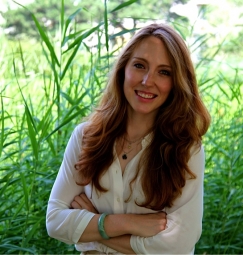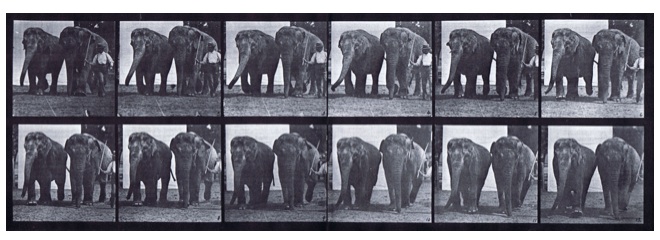Event

The Impossible Elephant & Other Animal Attractions of Early Media Theory
Over the past decade, an “animal turn” has taken place across a wide range of disciplines. I propose that cinema and media studies have a special role to play in it. In order to set the “posthumanities” on firm foundations—or, at least, to understand their allure—we must return to the moment when cinema emerged. Moving image technologies have constantly, even obsessively, depicted animals, from the motion studies of Eadweard Muybridge and Jules Etienne Marey, to Thomas Edison’s Electrocuting an Elephant, to GoPro Animals of YouTube and #pugsofinstagram. In 1916, Hugo Münsterberg rhapsodized about the “marvelous success of the kinematograph with the life of nature.” Nearly a century later, Raymond Bellour evoked the “primordial link between the animal and the cinema attested throughout its history.” This persistent link is not merely a coincidence.
Both the rise of posthumanist theory and the technological innovations that made cinema projection possible depended on the same shifts in understanding sense experience. In the late nineteenth and early twentieth centuries, a trans-Atlantic network of researchers were redefining subjectivity in terms that no longer distinguished humans from animals—referring to “impulses,” “excitations,” and “reactions,” rather than “language,” “reason,” or “spirit.” In other words, media theory has been a form of “animal studies” since the beginning. My paper offers a theory of their common descent.
After sketching a quick taxonomy of recent work on media and animals, I return to passages in Walter Benjamin’s artwork essay—perhaps the most cited in our discipline—on “training” and “test performance.” I argue that we must read these in conjunction with Benjamin’s own writings on natural history and creaturely life, as well as the rise of comparative psychology. How does Benjamin’s “innervation of technology” (Miriam Hansen) differ from other forms of experimentation or animal play? At present, critiques of humanism feel increasingly pointless, if only because corporate universities are already unmaking the institutional foundations of the humanities. The concepts of “free play” and “training” have remained crucial to those who would defend “aesthetic education.” What can posthumanists learn from the moment before our departments and the other sciences parted ways?

Moira Weigel is a PhD candidate in the joint program in Comparative Literature and Film and Media at Yale University. Previously, she earned an M. Phil in Screen Media and Cultures from Cambridge University, where she was the Lionel de Jersey Harvard Scholar at Emmanuel College, and a B. A. summa cum laude in German and English from Harvard. Her work focuses on the intersections of film, literature and philosophy in the nineteenth and twentieth centuries. Moira has also worked as a writer and translator, publishing essays on various subjects and translations from German and Chinese into English. She is currently under contract to co-write Labors of Love, a book on the history of dating and neoliberalism, with her Yale colleague Mal Ahern; Farrar Strauss & Giroux will publish it in spring 2016.
